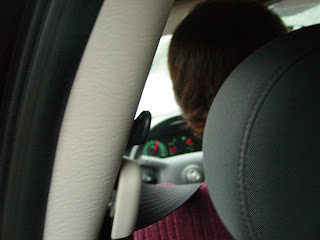Self-Regulation
 Last week’s readings on the self covered the topic of self-regulation and motivation. Self-regulation is essentially the ability to deliberately control our own behavior. Self-regulation has an adaptive quality to it. For instance, it would seem beneficial for one to be able to control one’s impulses, and plan for the future. And indeed, as Mischel et al. (1989) has found, children who are better at self-regulation often have better outcomes later in life, such as in academics.
Last week’s readings on the self covered the topic of self-regulation and motivation. Self-regulation is essentially the ability to deliberately control our own behavior. Self-regulation has an adaptive quality to it. For instance, it would seem beneficial for one to be able to control one’s impulses, and plan for the future. And indeed, as Mischel et al. (1989) has found, children who are better at self-regulation often have better outcomes later in life, such as in academics.
Even though self-regulation is very beneficial, it seems to come from a limited resource. It’s like a muscle, and as you use it, it tires. As Baumeister et al. (1998) has shown, self-regulatory acts deplete the “ego,” thereby making one less able to self-regulate in the future. Self-regulation seems to require energy (i.e., glucose) and/or a resting period. It’s a good thing to keep in mind, I think.
Interestingly, conscious thought isn’t exactly needed for the initiation of self-regulation. Through “implementation intentions”, one can automate self-regulation for various goal pursuits. For instance, if one desired to be less prejudiced against the elderly, then one could train him/herself to “tell” him/herself not to consider a person’s age every time an elderly person is encountered. One thought that came to mind, after reading about this, is whether automating self-regulation uses less ego resources than directed self-regulation. In particular, when thinking of the concept of the adaptive unconscious from the prior articles, it seems that the automatic unconscious is useful and adaptive for its ability to take in a lot of information without using up our resources. So automated self-regulation might just take up less energy than consciously directed self-control. Yet it still seems as though directed thought is needed in sustaining the self-regulatory behavior. Only the initiation of self-regulation seems to be automated, and after training oneself to automate this behavior. If implementation intentions use ego resources as much as that of deliberate self-regulation, then I would think that such cueing could be detrimental to the self-regulatory ability. For instance, if one created implementation intentions for multiple behaviors, and one encounters many cues throughout the day that activate these intentions, then one could become quickly and thoroughly depleted. At what level would these implementation intentions become detrimental? Or does the mere training that automates this behavior build up self-regulation? So, perhaps the automation does deplete self-regulatory resources, but the practice of automating self-control built up a larger inventory of self-regulatory resources to take from? Thoughts to explore further perhaps.
Citations for further reading:
Baumeister, R.F., Bratslavsky, E., Muraven, M., & Tice, D.M. (1998). Ego depletion: Is the active self a limited resource? Journal of Personality and Social Psychology, 74, 1252-1265.
Carver, C. S., & Scheier, M. F. (2008). Feedback processes in the simultaneous regulation of action and affect. In J. Y. Shah & W. L. Gardner (Eds.), Handbook of motivation science (pp. 208-224). New York: Guilford.
Gollwitzer, P. M. (1999). Implementation intentions: Strong effects of simple plans. American Psychologist, 54, 493-503.
Higgins, E. T. (1997). Beyond pleasure and pain. American Psychologist, 52, 1280-1300.
Mischel, W., Shoda, Y., & Rodriguez, M. L. (1989). Delay of gratification in children. Science, 244, 933-938.



2 comments:
Cited earlier in the implementation intention article was the idea of pre-deciding things. Part of the implementation intention itself is to tell yourself how you will act in a given situation. I think that energy is saved when you have pre-decided something and all you need to do is act as you told yourself you would in that situation. You don't have to go through the (ego-depleting) process of having to weigh out the pro's and the con's in this context. The more that you engage in this behavior seems related to how much energy savings you can get. The more you do this, the more energy will be saved each time in not having to to decide what to do.
Thanks for the comment Tim.
I agree with you that setting up an implementation intention will save precious ego resources for deciding to do the associated behavior, but you'll still have to use some of those resources to go through with that behavior.
Ultimately, what I'm interested in is how such a strategy effects your behavior in areas not associated with the implementation intention.
So, for instance, say that I want to restrict junk food from my diet. And I form an implementation intention in the form that every time I see a donut, I'll ignore it. Then deciding to ignore the donut will be automatic, but going through with ignoring the tasty treat will still take some will-power. How will that affect later tasks? Perhaps it will gradually be easier to ignore donuts, but if I encounter 10 donuts (or whatever treat) throughout one day, how will that build up of ego-depletion affect my self-regulation on more important tasks, such as studying or whatever?
I think setting up these intentions is a good strategy for the behavior associated with them, but I'd like to see how they affect other behaviors that aren't relevant to the intention.
Post a Comment